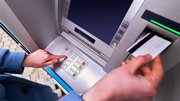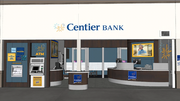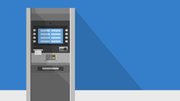Blog
Spending cash turns out to be expensive
December 17, 2013 by Terry Dooley — SVP & CIO, ITS, Inc
Using cash is costing Americans $200 billion per year. This amounts to an average of $1,739 per household, according to a new study by the Fletcher School at Tufts University. The report, "The Cost of Cash in the United States," examines the financial, time and productivity costs associated with cash use.
A recent MasterCard report found that only 20 percent of all consumer spending in the U.S. is done with cash. Even so, the Tufts' study concluded there are a number of reasons consumers continue to use paper money. Many consumers (some 17 million) fall into the category of "unbanked."
These individuals have little alternative to using cash. Other consumers, even those who are banked find the privacy of cash transactions appealing. Others take comfort in the nearly universal acceptance of cash.
Then there is the set of people who believe cash is a less expensive option than credit cards or even debit cards that can get them into overdraft trouble. For these individuals, cash is a budgeting tool that helps keep their spending in check.
"Obviously, cash is never going to go away — it's an important part of the economy," said Bhaskar Chakravorti, executive director of the Institute for Business at Tufts. "But we need to recognize the costs it's imposing, both real costs and opportunity costs."
Some of those real and opportunity costs break down like this:
- theft costs businesses $40 billion and individuals $500 million annually;
- out-of-network and foreign ATM fees amount to $8 billion; and
- the average American spends 28 minutes per month traveling to and from getting cash.
Not surprisingly, the cost of cash is higher for lower income and unbanked Americans. In fact, the unbanked pay on average $3.66 more per month to transact with cash, than banked consumers. The study also found that less wealthy consumers carry larger amounts in cash and pay more fees for cash transactions than more affluent Americans. Also, the unbanked use greater amounts of cash each month than banked consumers.
Of course, the cost of accessing cash depends on the source. Those receiving income by prepaid or payroll card paid more than four times as much as the rest of the surveyed group. The lowest fees for cash transactions come from electronic funds transfer. The study also found that check-cashing services cost consumers $200 million in annual fees.
The significant cost of cash usage underscores the need for financial institutions to truly understand their customer bases. How do they prefer to transact and how can FIs deliver the highest-value products and services to address those preferences?
 ChatGPT
ChatGPT Grok
Grok Perplexity
Perplexity Claude
Claude












